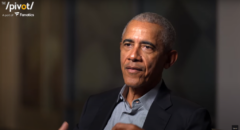
LeBron James may no longer reside in his hometown of Akron, Ohio, but it has never left his mind. He's always addressed the needs of the community. Previously the NBA superstar opened the LeBron James’ I Promise School to help close the achievement gap of students in the community. Now he is looking to address another concern of the community: healthcare.
The LeBron James Family Foundation announced plans for I Promise HealthQuarters, a new multimillion-dollar medical facility in Akron.
RELATED: LeBron James Opens A School: “This Is What I’m Here For”
Inside the facility
According to the foundation's Twitter, the facility will be within walking distance from the I Promise school and available to all I Promise students as well as the Akron community. The facility will be right across the street from House Three Thirty (James' restaurant and entertainment complex that is currently under construction) and offer medical, dental, mental health, and eye care services. Families in the community will also be able to enjoy the benefits of outdoor green space for recreational activities.
“When our families expressed a need for more healthcare services… we went to work. Today, we’ve come together with 3 organizations, @AxessPointe, @ColemanServices, & @pegsfoundation to create I Promise HealthQuarters to offer a variety of services ALL under one roof,” the foundation wrote.
These partnerships will bring services and staffing to I Promise HealthQuarters, according to cleveland.com.
Construction on the multimillion-dollar project will begin to transform the existing Bell Music Co. building into a full-fledged medical facility set to launch in 2023. The I Promise HealthQuarters will be housed at 533 W. Market Street.
This facility will also complement the I Promise Housing, which is currently under construction and will offer affordable housing options for partner families.
RELATED: LeBron James To Create Housing for His School’s Families
"It takes a village to help raise a kid and make a true difference! Love my kids and their families!", the Lakers star and recent billionaire wrote on Twitter as the news of the facility broke.
View this post on Instagram
Surviving the healthcare system
Michele Campbell, executive director of The LeBron James Family Foundation says the idea behind the facility is to remove barriers and obstacles to success for the 1,600 students and families they serve by improving their access to healthcare.
"This is a way to open our doors to other people too," she says. “Access to affordable healthcare has always been a critical need for our families—and further heightened by the pandemic—so we began rallying our community to bring the experts together under one trusted roof. Being able to provide this important resource for the entire community is only possible because we have incredible partners that share our We Are Family philosophy.”
View this post on Instagram
This facility will be groundbreaking for the Black community, who often don't receive quality healthcare.
“Systemic racism, inherent biases, and healthcare disparities create a bleak situation for Black people,” says Lisa Mallory, executive director of the National Association of Health Services Executives (NAHSE). “Receiving equitable medical care for us can be an uphill battle, no matter who you are or where you come from.”
So, what can we do to take back our power?
Mallory says it starts with being our own advocates. “Although we as Black people continue to face deep challenges receiving the quality care we deserve, we do have the power to take charge of our medical experiences and wellness,” Mallory adds.
As a patient facing health disparities, one of the first things you can do is focus on what you can control. This means thinking about how you can live a healthier lifestyle. According to the Cleveland Clinic, about 80% of chronic diseases are the result of lifestyle choices.
By practicing healthy habits, you can slow or even reverse diabetes, obesity, hypertension, high cholesterol, and heart disease.
Another option? Don't take everything your doctor tells you at face value. Second opinions are your friend. In fact, the healthcare journal BMJ Quality and Safety found that approximately 12 million adults are misdiagnosed in the U.S. every year. If something feels off, don't hesitate to talk with your doctor about it and if you aren't being heard, find a doctor that will address your concerns.
Never underestimate the power of storytelling. Dr. Leana Wen, author of When Doctors Don’t Listen: How to Avoid Misdiagnoses and Unnecessary Tests, says you can also improve your communication with doctors through storytelling. Instead of saying my stomach hurts, tell doctors the story of how the pain started. According to Dr. Wen, over 80% of diagnoses can be made just by listening, and if patients are allowed to tell their stories, it can help them feel heard.
“It’s critical that Black people advocate for themselves and to speak up and be assertive when necessary to get the medical care they need,” Mallory adds. “You don’t have to settle. Do what you can to find medical providers you can trust, who make you feel comfortable and will listen to you. This is why NAHSE promotes greater participation of minority groups in the health field. Representation matters.”








